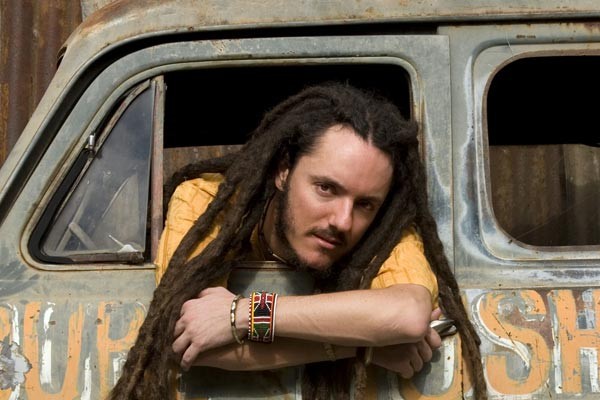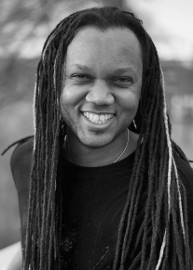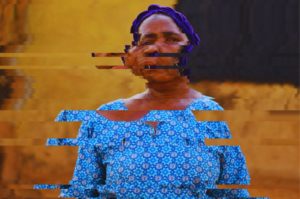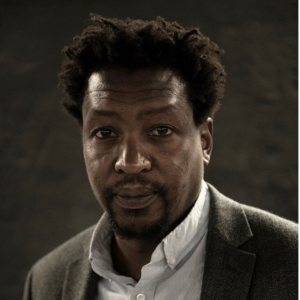
“Bread and Roses” is a song that has haunted my psyche for the last few years, right from the very first time I heard it in 2009. With the self-immolation of Mohammed Bouaziz in Tunisia (2011) that set off the Arab Spring, I gradually developed a new understanding of the song and just how subversive it is. I’ve tried to be faithful to the lyrics in this story and it is this new dimension that I attempt to fuse with them. I would like to thank Comrade Fatso and Chabvondoka for giving me the permission to riff off their track.
— Author’s Note
My belly wakes me again/ ndomuka nafour dzemakuseni. In my dreams I am someplace far away. I’ve been to America, South Africa, the moon, away from this house of hunger. Each night, I lay my head on the pillow and shut my eyes. For a few hours everything is alright again. Then I wake up, full bladder, stomach aching, Mama snoring on the bed and little Chiwoniso tossing and turning beside her.
A mosquito bites my arm. I let it feed for a moment, then squash it. I lie on my mat on the floor, looking at the moon peering through the torn curtain in the one window of our one room in Mbare. I get up, creep outside to the bathroom and bath. The cold water in the bucket winds me, but I grit my chattering teeth and endure, lathering myself in the sweet scent of Lifebuoy.
I’m starving. The guava tree’s not yet ripe. If the sales were good yesterday, Mama might give me a packet of maputi for breakfast. Otherwise, I’ll have to make do. I go back to our room, wake Mama and Chiwoniso. They bath while I ready our goods in sacks and load up the wheelbarrow.
My little sister’s twelve and goes to school. She’s really good at it. If she passes, we want her to go to university and become a doctor. Then we’ll get a house in the suburbs – no more sharing one room. That’s why me and Mama work so hard for her fees. There’s half a loaf in our room, but it’s for Chiwoniso to eat before she goes to school.
Mama and I set off early on Simon Mazorodze. Ndoenda kumusika/ the life of a vendor. I push the wheelbarrow, Mama carries a sack of rape on her head. Cars and buses pass us by. It’s six Ks to the city centre. My tummy rumbles. Mama’s singing some gospel song. I pick up the chorus, my broken voice intertwines with her voice above the hum of the early morning traffic.
We get to town, set up our stall on the side of the pavement under the shops’ awning. Mama’s selling rape and tomatoes/ tomatoes and rape. The pavements are lined with other women, women, who’ve become Mama’s friends. They chat and they laugh. Their stalls are full of colour, the browns of mazhanje, the greens of muriwo, the reds of madomasi, the yellows of mapopo, and every other colour on our flag. I take my tray of cigarettes and mints to sell at the kombi rank. Before I go, she grabs my shoulder, licks her thumb and removes mabori from the corners of my eyes.
Be good, she says.
I skip my way through the streets, as the city starts up. I go past the Indian shops, the electronic shops, the cafes, the hardware stores. I stop to sell a man a stick of Madison and take his bearer with its many zeroes. My first sale.
I meet Dzikamai, who sells, toothpicks and floor polish and we chum up to the rank. The cold morning air blows up my shorts. I jog to keep warm. I sell cancer. I sell tooth decay. I sell. I sell. I sell.
The morning whirls by as I weave between the kombis. I swear at hwindis. I see men in office clothes, children in colourful blazers on their way to posh schools, the mass of the unemployed milling about.
Then I see them, men in blue and grey fatigues, black boots on their feet. They are a tornado blowing through the street. The tall, light one at the front is their captain. He smashes tomatoes/ uses the baton stick for avocados/ all he knows is how to break coz he breaks for the laws sake. Vendors grab what they can save of their wares and flee. The police say we’re not registered, we have no licence. Do I need a licence to live/ is life theirs to give?
I remember Mama and run back to her. But the tsunami is right behind me. My heart is pounding through my ribcage. The women panic. They shout and scream. Babies on their backs cry out. They smash tomatoes, crush avocados/ destroy the table, destroy what’s illegal.
I’m helping Mama load up the wheelbarrow when he appears in front of us. The forces of good/ those who wage war on food. He raises his baton stick. The others are running. Across the road, citizens watch helplessly.
Mwanangu, usandidero. Ndapota, says Mama.
The baton stick comes down on her out stretched arm. I hear a bone crack. Something inside of me snaps. And then I’m kicking, and I’m biting, and I’m screaming, and I’m fighting, and I’m falling, and I’m drowning. Mama and I are under a sea of black boots and baton sticks. She covers me, using her own body as a shield.
Then I hear a roar, the vendors throw fruit like stones, the women from across the road advance, then the men follow. And they come in a mob, a whirlwind, and throw themselves at the police. The city comes alight with voices shouting, enough, zvakwana. The police scatter for we are many. The men hold me aloft. They raise me up into the sky.
And then we are marching, a hundred of us, a thousand, ten thousand. We sweep through the city. Bullets and tear gas and baton sticks can’t stop us anymore. The men and women chant, chingwa nemaruva/ bread and roses. We march to break down the doors of parliament and bring down the gates of the state house.
Watch the Live Performance that inspired Tendai Huchu’s lovely story.
***
 Tendai Huchu is the author of The Hairdresser of Harare. His short fiction and nonfiction has appeared in Wasafiri, The Africa Report, The Zimbabwean, The Open Road Review, Kwani?05, A View from Here and numerous other publications. He is currently working on his next novel, The Maestro, The Magistrate, & The Mathematician.
Tendai Huchu is the author of The Hairdresser of Harare. His short fiction and nonfiction has appeared in Wasafiri, The Africa Report, The Zimbabwean, The Open Road Review, Kwani?05, A View from Here and numerous other publications. He is currently working on his next novel, The Maestro, The Magistrate, & The Mathematician.









Here’s What’s Cool About All Five Caine Prize Stories | Brittle Paper April 24, 2014 09:22
[…] Interesting Fact: He dropped out of University of Zimbabwe in his first semester and took up a job in a casino. He now lives in Scotland where he is a podiatrist. Believe it or not Huchu is actually a Brittle Paper writer. Read his “narrative remix” of a song by the Zimbabwean musician Comrade Fatso {HERE}. […]